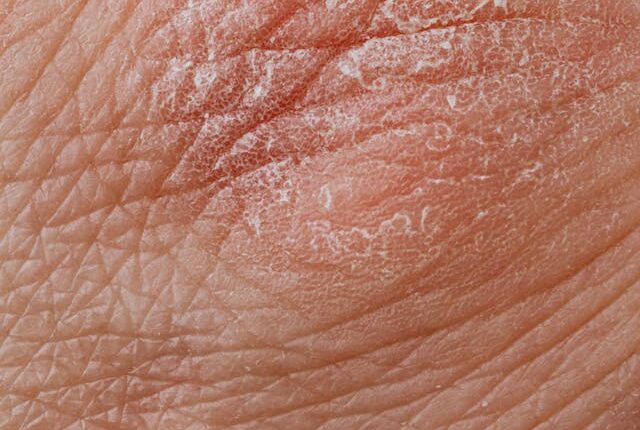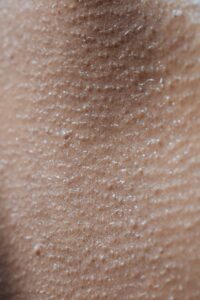Dry skin, medically known as xerosis, is a common condition affecting people of all ages. Characterized by rough, flaky, and itchy skin, it can be uncomfortable and sometimes painful. This blog will delve into the causes, symptoms, and effective solutions for managing dry skin, helping you achieve and maintain healthy, hydrated skin.
What Causes Dry Skin?
Dry skin occurs when your skin lacks adequate moisture in its outer layer. Several factors can contribute to this condition, including:
Environmental Factors:
Weather: Cold, dry air during winter or hot, dry air in arid climates can strip moisture from your skin.
Exposure to the Sun: UV rays can damage the skin barrier, leading to moisture loss.
Lifestyle Factors:
Frequent Bathing: Long, hot showers or baths can remove natural oils from your skin.
Harsh Soaps and Detergents: Using products with strong chemicals can strip your skin of its natural moisture.
Dehydration: Not drinking enough water affects your skin’s hydration levels.
Medical Conditions:
Eczema and Psoriasis: These skin conditions can lead to excessive dryness and scaling.
Hypothyroidism: An underactive thyroid can reduce oil production, leading to dry skin.
Diabetes: High blood sugar levels can result in dehydration and dry skin.
Age:
As you age, your skin produces less oil, making it more prone to dryness.
Symptoms of Dry Skin
The symptoms of dry skin can vary in severity but commonly include:
Rough, Scaly Texture:
Your skin may feel rough to the touch and appear scaly or flaky.
Itching:
Dry skin often causes itching, which can range from mild to severe.
Redness:
Affected areas may become red and inflamed, especially after scratching.
Cracks and Fissures:
Severe dryness can lead to cracks and fissures, which can be painful and sometimes bleed.
Tightness:
Your skin may feel tight, particularly after bathing or swimming.
Effective Solutions for Managing Dry Skin
Moisturize Regularly
Choose the Right Moisturizer: Opt for products with ingredients like hyaluronic acid, glycerin, and ceramides that help retain moisture. Thick, ointment-based moisturizers are particularly effective for very dry skin.
Application: Apply moisturizer immediately after bathing while your skin is still damp to lock in moisture.
Adjust Your Bathing Routine
Shorten Shower Time: Limit showers to 5-10 minutes and use lukewarm water instead of hot.
Gentle Cleansers: Use mild, fragrance-free cleansers to avoid stripping natural oils.
Humidify Your Environment:
Use a Humidifier: Adding moisture to the air, especially during winter, can help keep your skin hydrated.
Stay Hydrated:
Drink Plenty of Water: Aim for at least 8 glasses of water a day to maintain overall hydration.
Protect Your Skin
Wear Sunscreen: Protect your skin from UV damage by using a broad-spectrum sunscreen with at least SPF 30.
Dress Appropriately: Wear gloves and scarves to protect your skin from cold, dry air.
Avoid Irritants:
Hypoallergenic Products: Use products designed for sensitive skin and avoid those with alcohol, fragrances, or harsh chemicals.
Gentle Laundry Detergents: Choose mild, fragrance-free detergents for your clothing and bedding.
Diet and Supplements
Healthy Fats: Incorporate foods rich in omega-3 fatty acids, such as fish, flaxseeds, and walnuts, to help maintain skin health.
Supplements: Consider supplements like fish oil or evening primrose oil after consulting with a healthcare provider.
When to See a Doctor
While home remedies and lifestyle changes can effectively manage mild to moderate dry skin, it’s important to seek medical advice if:
Severe Symptoms: Your skin becomes severely cracked, bleeding, or painful.
Persistent Dryness: Your skin remains dry despite using moisturizers and other remedies.
Underlying Conditions: You have an underlying condition like eczema, psoriasis, or diabetes that requires specialized care.
Conclusion
Dry skin is a common yet manageable condition. By understanding the causes and symptoms, you can take proactive steps to keep your skin hydrated and healthy. Regular moisturizing, gentle skincare practices, and protecting your skin from environmental factors are key strategies for managing dry skin. If your symptoms persist or worsen, consulting a healthcare professional is essential to address any underlying conditions and receive appropriate treatment. Embrace these solutions to enjoy smooth, comfortable skin all year round.










